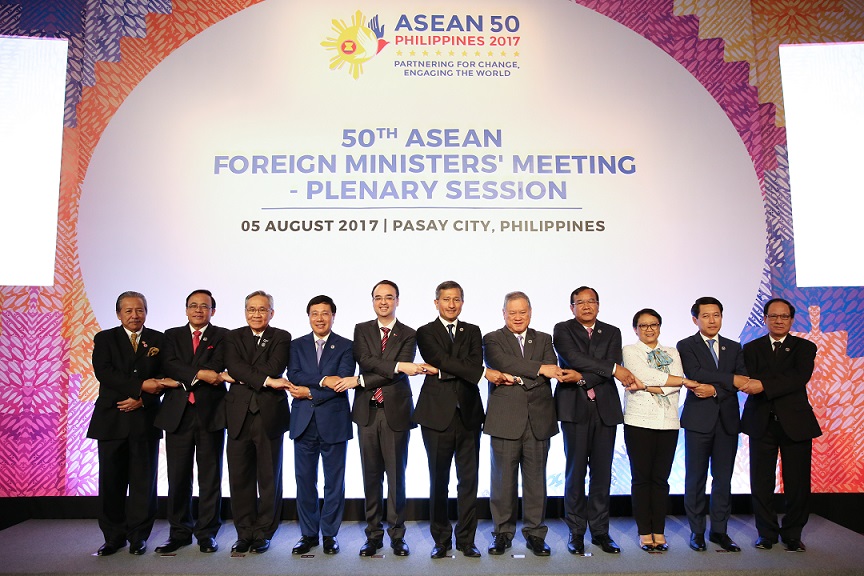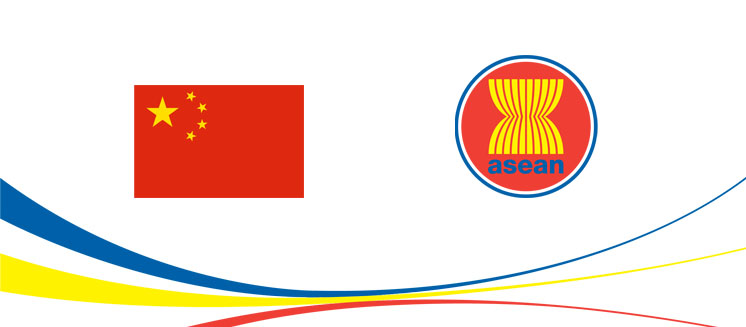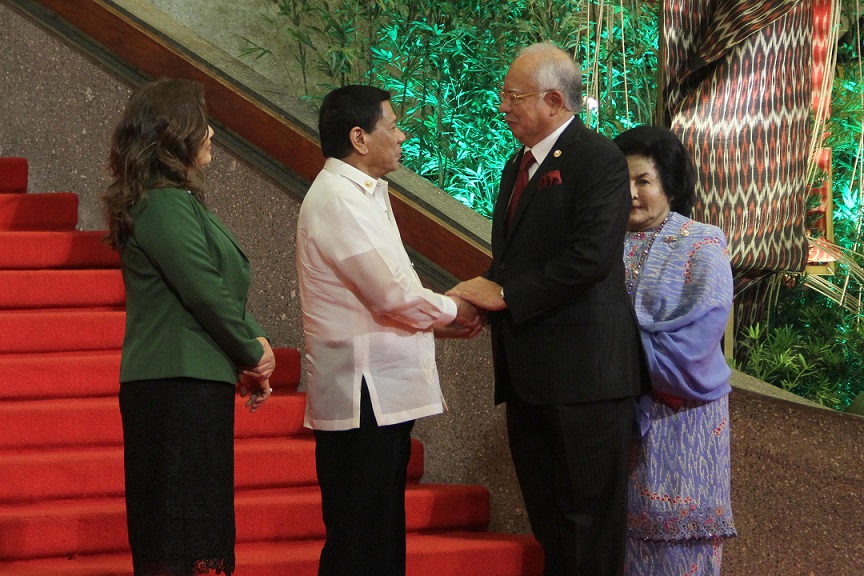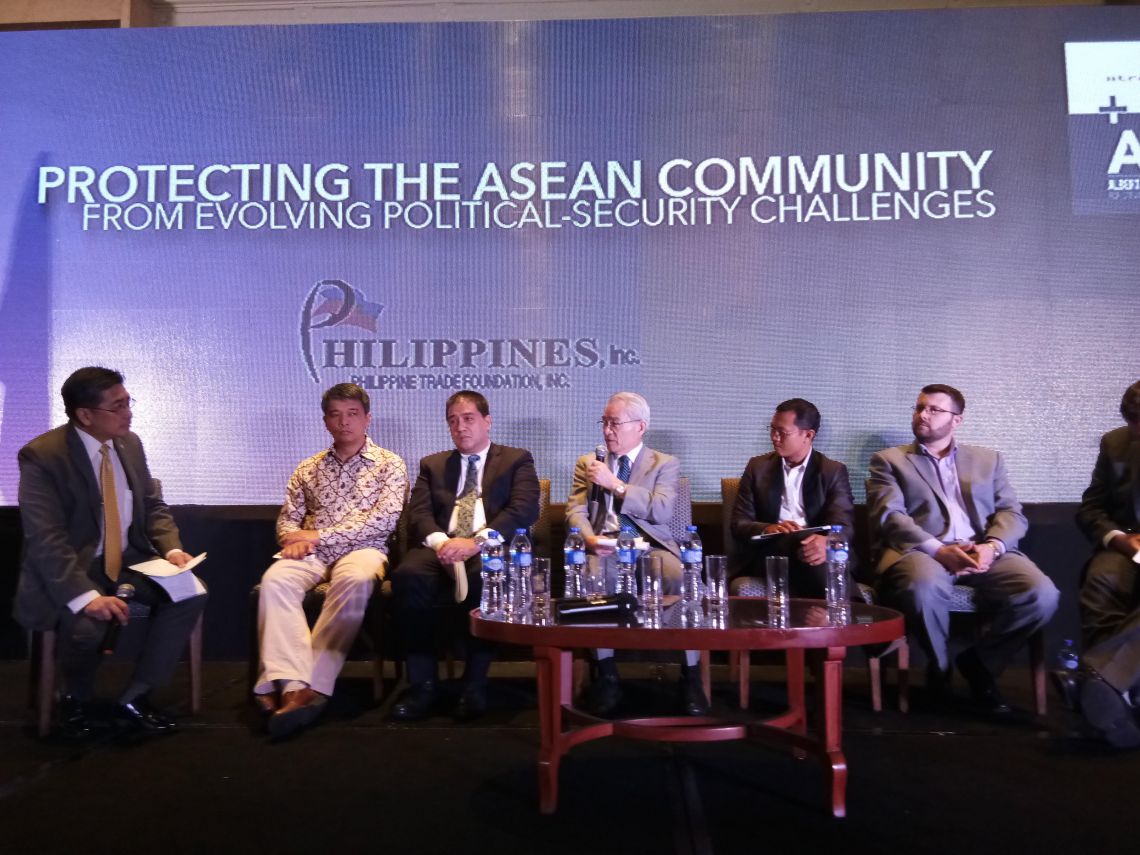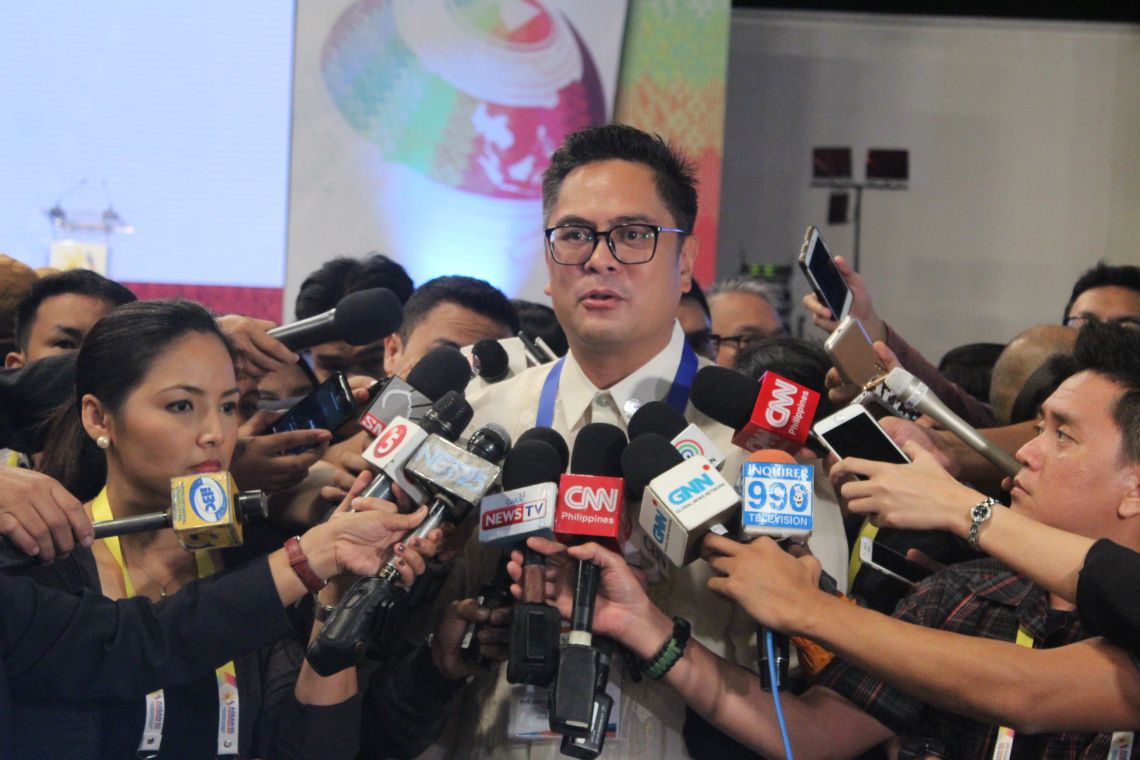Countries participating in a mammoth Asean-led regional free trade agreement are making a fresh pitch to salvage the deal with new proposals on the level of trade they are willing to liberalize.
Philippine Trade Secretary Ramon Lopez said members of the Regional Comprehensive Economic Partnership (RCEP) will be putting forward individual recalibrated proposals by Sept. 22. These new offerings will be the basis of a fresh round of negotiations in South Korea in October.
“Hopefully (we will) have a more acceptable offer,” Lopez told reporters after the conclusion of a weeklong meeting of economic and trade ministers of the Association of Southeast Asian Nations (Asean) and dialogue partners.
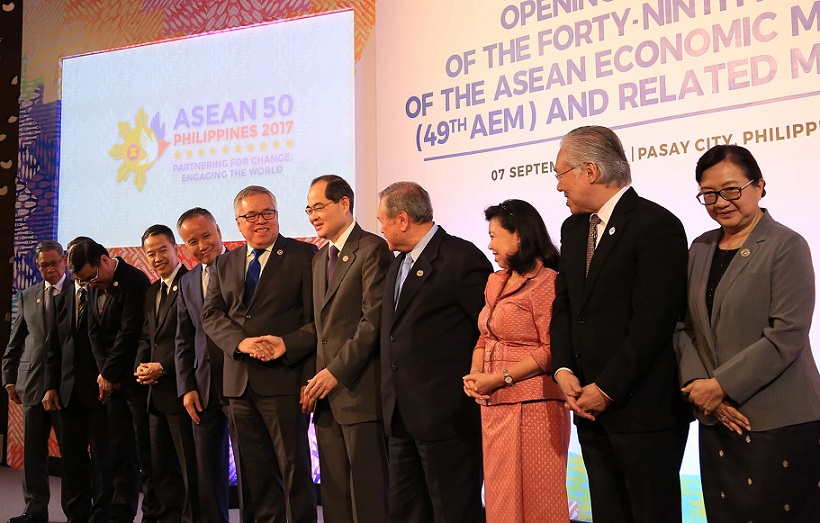
2017 AEM Chair Trade Secretary Ramon Lopez leads the discussion of Asean trade ministers
on Regional Comprehensive Economic Partnership during ministerial meeting in
Manila September 7 to 11 in preparation for the summit of ASEAN and dialogue
partners in November.
Talks on the Asean-led RCEP had been stalled following a deadlock on, among others, the extent of products that member countries are willing to liberalize. RCEP consolidates Asean’s individual Free Trade Agreements (FTA) with Australia, China, India, Japan, South Korea, and New Zealand.
While some countries wanted 100 percent liberalization, others are only willing to go to a level that is even lower than the 90.3 percent median that Asean has with individual FTA partners.
To get a fresh impetus on talks, RCEP members on Sunday endorsed a list of key elements designed as a guide on how to recalibrate individual negotiating positions on tariff rates and for other provisions such as “the modalities of services and other parts of the discussion.”
“It has given some indication on recalibrated or more realistic landing zones or objectives, which was deemed important if we are really (to) move forward the discussion on RCEP,” Lopez said at a press conference.
Asean member countries have more or less agreed on 92 percent level of liberalization and they are hopeful that other countries to pitch a figure that is around the same level.
“We emphasize on more realistic ambitions,” Lopez said. “This will include more realistic ambitions on percentage of products for inclusion, the time of its inclusion may it be for the next 10 years or the next 15 years, and so it basically covers the timeframe.”
Without being specific, Lopez said that half of six non-Asean RCEP members are supportive of Asean’s position.
He acknowledged that the Asean partners need to consult their capitals on developments, but expressed hope that peer pressure would encourage these states to be more cooperative.
“This is a critical stage now. The guidelines being set by the economic ministers to the negotiating team are clear,” Lopez said.
“Hopefully other FTA partners have said they need to go back to their constituents, hopefully when they come back they will really show that they are willing to work with us.”
Negotiations for RCEP began in 2012 and it was supposed to have been finalized by year-end of 2017.
